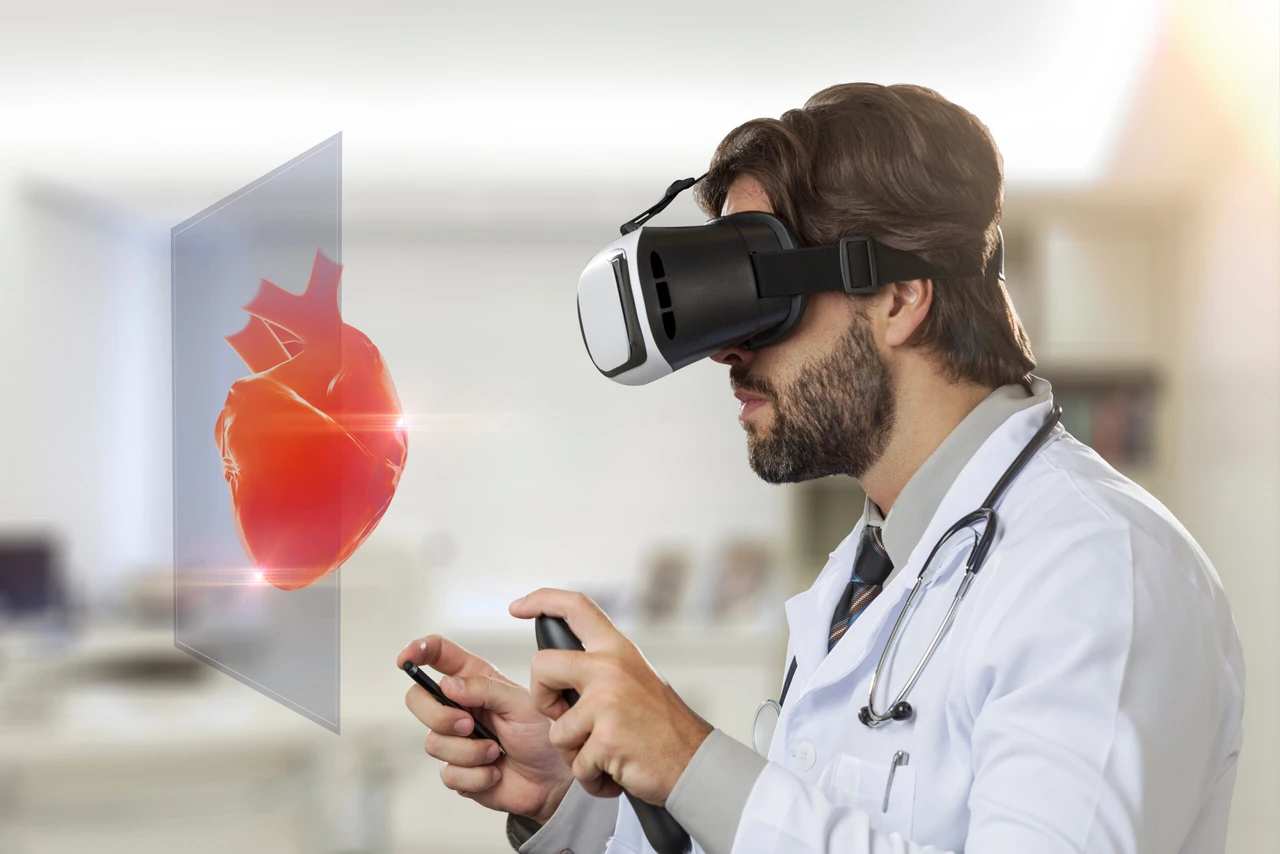Türkiye’s Cerrahpasa ‘virtual medicine’ reaches final at prestigious THE Awards Asia 2025
 A male doctor in his office, wearing virtual reality glasses, observing a virtual heart. (Adobe Stock Photo)
A male doctor in his office, wearing virtual reality glasses, observing a virtual heart. (Adobe Stock Photo)
Cerrahpasa Research, Simulation, and Design Centre (CAST), operating under Istanbul University-Cerrahpasa, has reached the final of the THE Awards Asia 2025, often referred to as the “Oscars of Higher Education.”
The team at CAST is now preparing for the prestigious award ceremony, which will take place on April 22, 2025, in Macao, China.
International stage for innovation in higher education
THE Awards Asia 2025, held annually since 2019 by the London-based global higher education ranking institution, has attracted over 500 universities this year.
CAST, which has been operating under Istanbul University-Cerrahpasa since 2022, is one of the eight finalists in the “Technological or Digital Innovation of the Year” category with its groundbreaking project, “Personalized Medicine: From Design to Product.”
Cerrahpasa’s 3D healthcare solutions: Revolutionizing medical training
CAST’s Director, Assoc. Professor Dr. Bedri Karaismailoglu, spoke about the journey that led them to this success: “The foundation of CAST was laid in 2021 with the support of the Istanbul Development Agency. Our goal was to use 3D technologies more effectively in healthcare. We formed a multidisciplinary team involving academics from orthopedics, plastic surgery, neurology, ENT, cardiology, and anatomy.”
He continued, “Our aim is to provide services to patients and conduct research with the center’s facilities. Currently, we are collaborating with academic institutions such as Harvard University, Mass General Hospital in the U.S. and Ghent University in Belgium.”
Advanced 3D printing for medical models and implants
At CAST, 15 advanced 3D printers are used to create various products. These printers are employed to generate educational models, surgical instrument-like products, and biocompatible implant materials. The center also offers training courses that allow beginners to gain surgical experience on “cadaver-like” models. While obtaining real cadavers can be challenging, these 3D-printed models offer a highly effective alternative, enabling students to perform operations on models that replicate the steps of real surgeries.
“These 3D-printed models will largely replace cadavers in medical training,” Dr. Karaismailoglu added.
Setting ambitious goals: Aiming for first place
CAST’s team is confident about their chances in the competition. Director Karaismailoglu stated, “Our goal is to make the entire process from idea to product accessible here. Therefore, we are aiming for first place at the awards ceremony.”
Innovative 3D models: From bones to skin
In addition to bone and tendon structures, CAST also creates 3D models of human skin. Dr. Karaismailoglu explained: “We transfer the patient’s data into a virtual environment, where we construct structures like bones and tendons for surgical procedures. We can also scan the patient’s skin and create a 3D version. Moreover, we can print joints in motion using 3D printers. These models allow us to perform surgeries and track the healing process.”
Since 2022, CAST has produced 3D models for over 300 patients.



